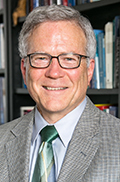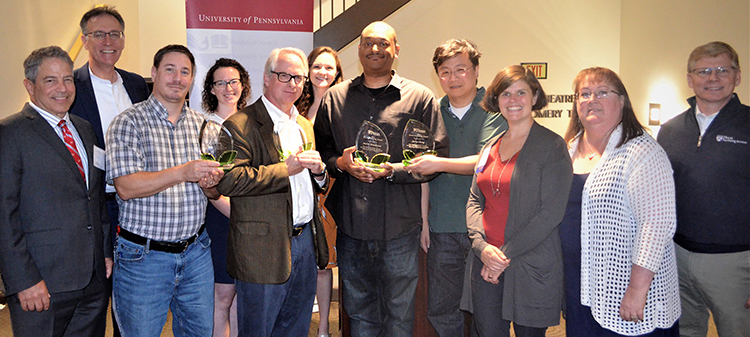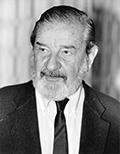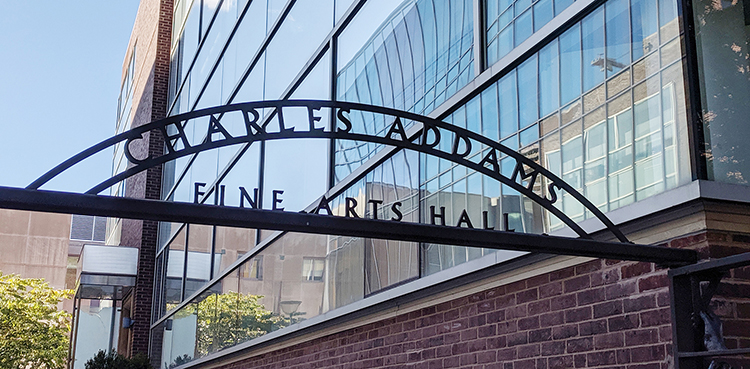Penn Medicine: $22 Million from NIH HEAL Initiative to Address the National Opioid Crisis
The nation has been grappling with the opioid epidemic for years—and the city of Philadelphia has been hit hard by the crisis. While data is showing slight declines in overdose deaths, the opioid crisis remains a public health emergency. Efforts to stem the epidemic have included prescribing fewer painkillers, providing free naloxone trainings across the city, offering recovery programs in emergency departments and launching dedicated research efforts to examine the cause and impact.
The National Institutes of Health (NIH) announced awards from the Helping to End Addiction Long-term Initiative (NIH HEAL Initiative), which was launched in April 2018 to improve prevention and treatment strategies for opioid misuse and addiction and enhance pain management. Through this initiative, Penn Medicine has been awarded five grants totaling more than $22 million to apply scientific solutions to reverse the national opioid crisis.
New Strategies to Prevent and Treat Opioid Addiction
 A team lead by David Mandell, professor of psychiatry and director of the Center for Mental Health, Kyle Kampman, professor of psychiatry and director of the Charles O’Brien Center for the Treatment of Addictions, and Hillary R. Bogner, associate professor of familymedicine and community health, is receiving a $11.2 million grant from the initiative.
A team lead by David Mandell, professor of psychiatry and director of the Center for Mental Health, Kyle Kampman, professor of psychiatry and director of the Charles O’Brien Center for the Treatment of Addictions, and Hillary R. Bogner, associate professor of familymedicine and community health, is receiving a $11.2 million grant from the initiative.
Their team will study the treatment of opioid use disorder (OUD) and psychiatric disorders in the primary care setting with a collaborative care model. The collaborative care model places licensed clinical social workers specially trained in mental health care in primary care offices. These experts will work with 39 primary care practices in Philadelphia, their primary care physicians and psychiatrists to proactively identify, assess and direct patients to treatment options as needed during their appointments.
Clinical Research in Pain Management
 Laura M. Dember, professor of medicine in renal-electrolyte and hypertension and epidemiology, was awarded a $5.5 million grant from the NIH HEAL Initiative.
Laura M. Dember, professor of medicine in renal-electrolyte and hypertension and epidemiology, was awarded a $5.5 million grant from the NIH HEAL Initiative.
Penn will serve as the Scientific and Research Data Center for the Hemodialysis Opioid Prescription Effort (HOPE) consortium. The center will provide scientific and operational leadership for the design, implementation and analysis of a randomized clinical trial of behavioral and pharmacologic interventions to reduce pain and opioid use among people with kidney failure receiving maintenance hemodialysis. The trial will be conducted at eight clinical centers that are separately funded by the HEAL initiative.
J. Richard Landis, professor of biostatistics, John Farrar, associate professor of epidemiology, and Dr. Kampman are co-principal investigators.
 Dr. Farrar was also awarded a $931,000 grant from the NIH HEAL Initiative. The Hospital of the University of Pennsylvania and six additional Penn Medicine centers will serve as Specialized Clinical Centers—or “hubs”—for the NIH’s Early Phase Pain Investigation Clinical Network (EPIPIC-Net).
Dr. Farrar was also awarded a $931,000 grant from the NIH HEAL Initiative. The Hospital of the University of Pennsylvania and six additional Penn Medicine centers will serve as Specialized Clinical Centers—or “hubs”—for the NIH’s Early Phase Pain Investigation Clinical Network (EPIPIC-Net).
The Specialized Clinical Centers will provide infrastructure to implement high-quality, comprehensive studies of patients with well-defined pain conditions, as well as the design and performance of two clinical trials to test promising new treatments for pain. The Penn Medicine site will assist the EPPIC-Net to make clinical, neuroimaging, biomarker and preclinical data, as well as biosamples, available through public access data and biospecimen repositories.
Michael Ashburn, director of Pain Medicine and Palliative Care, will serve as co-principal investigator.
Novel Medication Options for Opioid Use Disorder and Overdose

 Drs. Kampman and George E. Woody, a professor in the department of psychiatry, have been awarded $4 million from the NIH to study a path towards improving the success of opioid detoxification, focusing on a transition to extended-release injectable naltrexone (XR-NTX), a medication that reduces opioid relapse and overdose risk.
Drs. Kampman and George E. Woody, a professor in the department of psychiatry, have been awarded $4 million from the NIH to study a path towards improving the success of opioid detoxification, focusing on a transition to extended-release injectable naltrexone (XR-NTX), a medication that reduces opioid relapse and overdose risk.
Transitioning to XR-NTX requires motivation and detoxification, which are major hurdles for those with an OUD. Detoxification with lofexidine—a medication approved by the Food and Drug Administration for opioid detoxification about one year ago—does not have much effect on the achiness and other symptoms of withdrawal that lead some patients to drop out of treatment. The study will test whether pregabalin—a medication shown in studies to suppress many of those withdrawal-related symptoms—can be safely combined with lofexidine to improve the success of detoxification and transition to XR-NTX treatment, as compared to lofexidine alone.
Enhanced Outcomes for Infants and Children Exposed to Opioids
 A team led by Dylan Tisdall, research assistant professor of radiology, and Allyson Mackey, assistant professor of psychology, was awarded a $550,000 grant from the initiative.
A team led by Dylan Tisdall, research assistant professor of radiology, and Allyson Mackey, assistant professor of psychology, was awarded a $550,000 grant from the initiative.
The researchers will conduct a feasibility study to address the knowledge gap in understanding how opioid exposure impacts early brain development. While neuroimaging studies in young children offer an opportunity to quantify these developmental processes, existing imaging methods are not ideal for this group of patients, since young children exposed to opioids are prone to in-scanner motion. The Penn team plans to develop novel neuroimaging methods optimized for young children. They will evaluate these methods in a sample of 100 children, ages three to five, recruited from the community in Philadelphia that has been hardest hit by the opioid crisis. They will test whether the new technologies improve the quality of the raw imaging data and reduce motion biases.
 “It’s clear that a multi-pronged scientific approach is needed to reduce the risks of opioids, accelerate development of effective non-opioid therapies for pain and provide more flexible and effective options for treating addiction to opioids,” said NIH director Francis S. Collins, who launched the initiative in early 2018. “This unprecedented investment in the NIH HEAL Initiative demonstrates the commitment to reversing this devastating crisis.”
“It’s clear that a multi-pronged scientific approach is needed to reduce the risks of opioids, accelerate development of effective non-opioid therapies for pain and provide more flexible and effective options for treating addiction to opioids,” said NIH director Francis S. Collins, who launched the initiative in early 2018. “This unprecedented investment in the NIH HEAL Initiative demonstrates the commitment to reversing this devastating crisis.”
$3 Million Stand Up 2 Cancer Grant to Support Therapy Trial
 A new $3 million grant to support a clinical trial evaluating a combination therapy to prevent triple-negative breast cancer from recurring will be led in the clinic by Angela DeMichele, the Alan and Jill Miller Professor in Breast Cancer Excellence in the Abramson Cancer Center (ACC) at the University of Pennsylvania and co-director of the ACC’s 2-PREVENT Translational Center of Excellence. The grant was awarded by Stand Up 2 Cancer (SU2C) in partnership with Genentech, and will be administered by the organization’s scientific partner, the American Association for Cancer Research (AACR).
A new $3 million grant to support a clinical trial evaluating a combination therapy to prevent triple-negative breast cancer from recurring will be led in the clinic by Angela DeMichele, the Alan and Jill Miller Professor in Breast Cancer Excellence in the Abramson Cancer Center (ACC) at the University of Pennsylvania and co-director of the ACC’s 2-PREVENT Translational Center of Excellence. The grant was awarded by Stand Up 2 Cancer (SU2C) in partnership with Genentech, and will be administered by the organization’s scientific partner, the American Association for Cancer Research (AACR).
Triple-negative breast cancer (TNBC) is a tumor type in which cancer cells lack hormone epidermal growth factor receptor 2 (HER-2), estrogen receptors (ER) and progesterone receptors (PR). Because the cancer cells test negative for all three receptors, hormone therapies and drugs that target the receptors are not effective treatments. TNBC is aggressive and can spread after treatment with radiation, chemotherapy or surgery.
“Currently, women with triple-negative breast cancer have a high risk of recurrent, metastatic disease after they are initially treated,” said Dr. DeMichele, who also serves as the co-leader of the ACC’s Breast Cancer Research Program and director of the ACC’s Breast Cancer Clinical Trials Unit. “This trial will utilize a blood test for circulating tumor DNA to identify women at risk. Our goal is to harness the immune system to eliminate the cancer once and for all.”
Dr. DeMichele will work with team leader Elizabeth A. Mittendorf, director of the breast immuno-oncology program at Dana-Farber/Brigham and Women’s Cancer Center in Boston, on this project. The team plans to use a blood test called liquid biopsy to detect the spread of the disease before it can gain a foothold in distant organs. When cancer cells are detected, patients would receive a combination of drugs. One drug is ipatasertib, which is an investigational therapy that blocks activity in the PI3K/AKT cellular signaling pathway, which can prevent cancer cells from multiplying and spreading. The second drug is atezolizumab, which is a PD-L1 inhibitor that can free the immune system to attack cancer cells.
The 2-PREVENT Translational Center of Excellence at the ACC, which Dr. DeMichele co-directs with Lewis Chodosh, the Perelman Professor in Cancer Biology in the Perelman School of Medicine at the University of Pennsylvania, is a multidisciplinary research program focused on preventing recurrent breast cancer through improved understanding of breast cancer metastatic behavior, development of new technologies to find minimal residual disease and translation to novel clinical trials that target the ways in which cancer cells survive initial treatment with the goal of reducing mortality from breast cancer.
The grant is supported by SU2C Catalyst Founding Collaborator, Genentech, a member of the Roche Group, and is the latest fruit of SU2C’s collaboration with the pharmaceutical and biotechnology industry under the SU2C Catalyst® initiative. SU2C Catalyst is a collaborative program that leverages the pharmaceutical, biotechnology, diagnostic and devices industries to accelerate the development of new treatments, and combination therapies, to patients as rapidly as possible through early-phase clinical trials or translational research.
Gregg Semenza: 2019 Nobel Prize in Physiology or Medicine
 Penn alumnus Gregg Semenza (M’82, Gr’84) was among a trio of researchers jointly awarded the 2019 Nobel Prize in Physiology or Medicine for research on how oxygen availability affects cells. He shares the prize with William Kaelin, who runs a research laboratory at the Dana-Farber Cancer Institute in Boston and is also a professor at Harvard Medical School, and Peter Ratcliffe, who runs an independent research group at Oxford University, where he also serves as a professor.
Penn alumnus Gregg Semenza (M’82, Gr’84) was among a trio of researchers jointly awarded the 2019 Nobel Prize in Physiology or Medicine for research on how oxygen availability affects cells. He shares the prize with William Kaelin, who runs a research laboratory at the Dana-Farber Cancer Institute in Boston and is also a professor at Harvard Medical School, and Peter Ratcliffe, who runs an independent research group at Oxford University, where he also serves as a professor.
Dr. Semenza graduated from Penn’s Perelman School of Medicine in 1982 and from the School of Arts and Sciences with a PhD in genetics in 1984. He became a faculty member at Johns Hopkins Medicine in 1990, where he currently serves as the director of the Vascular Program at the Institute for Cell Engineering. He is the tenth Penn person to have won the Nobel in Physiology or Medicine, more than any other category.
The Nobel Committee awarded Drs. Semenza, Kaelin and Ratcliffe with the honor because of their research on how cells sense and respond to changes in oxygen availability. The scientists identified molecular machinery that regulates the activity of genes in response to varied oxygen levels. Their respective discoveries established a basis for understanding how oxygen levels impact cellular metabolism and physiological function, paving the way for strategies to fight cancer, anemia and other diseases.
“This is a basic aspect of how a cell works and, from that standpoint along, it’s a very exciting thing,” Nobel Prize Committee Member Randall Johnson told CNN.com, adding that it’s a “textbook discovery.”
Dr. Semenza isolated the hypoxia-inducible factor complex, or HIF-1, from cultured liver cells. In response to low oxygen levels, the HIF-1 protein binds to the DNA segments that contains the gene for the hormone erythropoietin. Previous research had demonstrated that low oxygen levels lead the body to release more erythropoietin, which leads to the production of red blood cells.
Dr. Semenza began studying how oxygen affects cells during his PhD research at Penn, where he studied the β-globin gene. In a paper, Semenza wrote that deficient production of the β-globin gene causes ineffective production of red blood cells that carry oxygen and sometimes leads to anemia, a condition in which the body does not have enough red blood cells.
Drs. Semenza and Ratcliffe, working separately, found the oxygen-sensing mechanism was present in virtually every tissue in the body.
Dr. Semenza also identified a protein complex, known as the hypoxia-inducible factor, that binds to cells’ DNA in an oxygen-dependent fashion. His research has led to an anemia drug, roxadustat, that was approved in China last December, according to Bloomberg News.
“Virtually all cells sense changes in oxygen availability, given the central importance of molecular oxygen to maintaining intracellular bioenergetics,” said Celeste Simon, a Penn Medicine researcher who has collaborated with Kaelin. “The importance of the work by Drs. Kaelin, Ratcliffe, and Semenza is their discovery of a key oxygen sensing pathway.
“As such, drugs both activating and inhibiting this pathway will be useful for treating various forms of cancer or renal failure. The work of all three laureates exemplifies how years of hard work and collaboration can reveal the secrets of some of the most important biological processes in nature.”
Twenty-nine Nobel laureates have been affiliated with Penn—either as graduates or as professors (see https://tinyurl.com/mostnobels). The last Nobel Prize awarded to a Penn affiliate was in 2011, when former professor Thomas Sargent was awarded the prize in economics. Thomas Sargent was awarded the prize in economics. Other recent winners include Ei-ichi Negishi, who earned his PhD in chemistry from Penn in 1963, and shared the 2010 prize in chemistry for having independently made advances in using the palladium complexes as catalysts to link together carbon molecules into larger, more complicated structures (Almanac October 12, 2010). In 2002, Raymond Davis, Jr., former research professor of physics, shared the prize in physics for work that gave rise to neutrino astrophysics (Almanac October 15, 2002).
Michael Gamer: British Academy Global Professorship
 Michael Gamer, professor of English in Penn’s School of Arts & Sciences, has been selected as a Global Professor by the British Academy, which comes with a prize of £749,100 (approximately $920,000).
Michael Gamer, professor of English in Penn’s School of Arts & Sciences, has been selected as a Global Professor by the British Academy, which comes with a prize of £749,100 (approximately $920,000).
Global Professorships are given to senior scholars undertaking innovative, curiosity-driven research in the humanities and social sciences.
Global Professorships are four-year grants for research in the UK and require a British host university to act as sponsor; Dr. Gamer’s sponsor will be the School of English and Drama at Queen Mary University of London. While there, Dr. Gamer will research and document every performance, review and contemporary commentary of melodrama in Britain before 1843. His project will explore how melodrama’s stage effects, including pantomime and immersive soundscapes, created new theatergoing experiences for audiences and how the same techniques influenced printed genres.
At Penn, Dr. Gamer was a 2017-2018 Price Mellon Research Fellow at the Price Lab for Digital Humanities, where he created a digital database of the 18th- and 19th-century playbills held by the Kislak Center for Special Collections, Rare Books and Manuscripts and the
British Library.
His most recent book, Romanticism, Self-Canonization, and the Business of Poetry, was published in 2017, and he also contributed to Interacting with Print: Modes of Reading in the Age of Print Saturation. He is the recipient of several teaching awards.
Paul K. Saint-Amour, the Walter H. and Leonore C. Annenberg Professor in the Humanities and professor and chair of the English department, noted that “Michael will be on leave from Penn for all four years—from January 2020 through December 2023. It’s very unusual for Penn faculty to be away for so many consecutive years; that Michael was given the green light to do so is a testament to the importance of this grant and to his value to the University as teacher, scholar and citizen.”
David Hershkowitz: Penn Dental Chief of Division of Restorative Dentistry
 Penn Dental Medicine recently welcomed David Hershkowitz to the School’s full-time faculty as associate professor of clinical dentistry and chief of the division of restorative dentistry. His appointment was effective October 1.
Penn Dental Medicine recently welcomed David Hershkowitz to the School’s full-time faculty as associate professor of clinical dentistry and chief of the division of restorative dentistry. His appointment was effective October 1.
As chief of the division of restorative dentistry, Dr. Hershkowitz will oversee the preclinical, clinical and postgraduate education initiatives within the division as well as its faculty and staff. This is one of three divisions within the School’s department of preventive and restorative sciences, led by department Chair Markus Blatz.
Dr. Hershkowitz comes to Penn Dental Medicine from New York University (NYU) College of Dentistry, where he has served on the faculty since 2008, most recently as clinical associate professor and associate chairman of the department of cariology and comprehensive care. There, he managed the predoctoral clinical facility and the more than 400 faculty and staff of the Department. He also had oversight of the school’s AEGD program.
Prior to his time at NYU, Dr. Hershkowitz served on the clinical faculty, 1995-2008, at the State University of New York at Stony Brook School of Dental Medicine. Among his roles at Stony Brook, he served as director of emergency care, director of anesthesia and director of the General Practice Program.
Dr. Hershkowitz holds a DDS from State University of New York at Buffalo School of Dental Medicine (1986). He is also a certified anesthesia assistant and completed a general anesthesia residency at the Hospital of the Medical College of Pennsylvania in 1987. Dr. Hershkowitz had a private practice in general dentistry in Stony Brook, New York, 1987- 2014 and has practiced within the NYU Faculty Practice since then.
“Along with his wealth of clinical care knowledge and academic experience, I know that Dr. Hershkowitz also brings collegiality and teamwork to all his endeavors,” said Penn Dental Medicine’s Morton Amsterdam Dean Mark Wolff. “I’m excited to have him joining our team.”
Don Harrison: Summer Mentorship Program Director
 Don Harrison, longtime program coordinator of the Provost’s Summer Mentorship Program (SMP), has been named the director of the program, effective October 1.
Don Harrison, longtime program coordinator of the Provost’s Summer Mentorship Program (SMP), has been named the director of the program, effective October 1.
Mr. Harrison began his work with SMP in 2008, the first year VPUL was assigned responsibility for the program. SMP began in 2006 as a summer college preparatory program for Philadelphia 10th and 11th grade public and charter school students. The students were paired with participating Penn professional schools. Currently five of Penn’s schools—PSOM, Nursing, Engineering, Law and Dental—engage these students in specially created curricula and activities that give them opportunities to explore possible career choices. Each year 60-70 students share in these experiences. In addition to the curriculum in the school to which they are assigned, the students are offered test prep, financial literacy, life skills, college application process assistance/information and other services that help them to hone their skills and strengthen their self-confidence.
Mr. Harrison has been central to the program; he has increased and expanded its offerings and served as the late Gail Oberton’s right hand partner in the growth and enhancement of SMP. She passed away on May 29 (Almanac July 16, 2019). Mr. Harrison has created a college prep guide and has brought a variety of innovative approaches to recruitment of participants, support to school partners, and creative joint activities for students.
Mr. Harrison is a native Philadelphian and a graduate of Central High School and Penn State University.
Nominations for University-Wide Teaching Awards: December 6
Nominations for Penn’s University-wide teaching awards are now being accepted by the Office of the Provost. Any member of the University community—past or present—may nominate a teacher for these awards. There are three awards:
The Lindback Award for Distinguished Teaching honors eight members of the standing faculty: four in the non-health schools (Annenberg, Design, SEAS, GSE, Law, SAS, SP2, Wharton) and four in the health schools (Dental Medicine, PSOM, Nursing, V eterinary Medicine).
The Provost’s Award for Distinguished PhD Teaching and Mentoring honors two faculty members for their teaching and mentoring of PhD students. Standing and associated faculty in any school offering the PhD are eligible for the award.
The Provost’s Award for Teaching Excellence by Non-Standing Faculty honors two members of the associated faculty or academic support staff who teach at Penn, one in the non-health schools and one in the health schools.
The nomination forms are available at the Teaching Awards website. The deadline for nominations is Friday, December 6, 2019. Full nominations with complete dossiers prepared by the nominees’ department chairs are due Friday, February 7, 2020.
Note: For the Lindback and Non-Standing Faculty awards, the health schools (Dental Medicine, Nursing, PSOM and Veterinary Medicine) have a separate nomination and selection process. Contact the relevant dean’s office to nominate a faculty member from one of those schools.
There will be a reception honoring all the award winners in the spring. For more information, please email provost-ed@upenn.edu or call (215) 898-7225.
Criteria and Guidelines
- The Lindback and Provost’s Awards are given in recognition of distinguished teaching. “Distinguished teaching” is teaching that is intellectually demanding, unusually coherent and permanent in its effect. The distinguished teacher has the capability of changing the way in which students view the subject they are studying. The distinguished teacher provides the basis for students to look with critical and informed perception at the fundamentals of a discipline, and s/he relates that discipline to other disciplines and to the worldview of the student. The distinguished teacher is accessible to students and open to new ideas, but also expresses his/her own views with articulate and informed understanding of an academic field. The distinguished teacher is fair, free from prejudice and single-minded in the pursuit of truth.
- Skillful direction of dissertation students, effective supervision of student researchers, ability to organize a large course of many sections, skill in leading seminars, special talent with large classes, ability to handle discussions or structure lectures—these are all attributes of distinguished teaching, although it is unlikely that anyone will excel in all of them. At the same time, distinguished teaching means different things in different fields. While the distinguished teacher should be versatile, as much at home in large groups as in small, in beginning classes as in advanced, s/he may have skills of special importance in his/her area of specialization. The primary criteria for the Provost’s Award for Distinguished PhD Teaching and Mentoring are a record of successful doctoral student mentoring and placement, success in collaborating on doctoral committees and graduate groups and distinguished research.
- Since distinguished teaching is recognized and recorded in different ways, evaluation must also take several forms. It is not enough to look solely at letters of recommendation from students or to consider “objective” evaluations of particular classes in tabulated form. A faculty member’s influence extends beyond the classroom and individual classes. Nor is it enough to look only at a candidate’s most recent semester or opinions expressed immediately after a course is over; the influence of the best teachers last, while that of others may be great at first but lessen over time. It is not enough merely to gauge student adulation, for its basis is superficial; but neither should such feelings be discounted as unworthy of investigation. Rather, all of these factors and more should enter into the identification and assessment of distinguished teaching.
- The Lindback and Provost’s Awards have a symbolic importance that transcends the recognition of individual merit. They should be used to advance effective teaching by serving as reminders to the University community of the expectations for the quality of its mission.
- Distinguished teaching occurs in all parts of the University. Therefore, faculty members from all schools are eligible for consideration. An excellent teacher who does not receive an award in a given year may be re-nominated in some future year and receive the award then.
- The Lindback and Provost’s Awards may recognize faculty members with many years of distinguished service or many years of service remaining. The teaching activities for which the awards are granted must be components of the degree programs of the University of Pennsylvania.
 A team lead by David Mandell, professor of psychiatry and director of the Center for Mental Health, Kyle Kampman, professor of psychiatry and director of the Charles O’Brien Center for the Treatment of Addictions, and Hillary R. Bogner, associate professor of familymedicine and community health, is receiving a $11.2 million grant from the initiative.
A team lead by David Mandell, professor of psychiatry and director of the Center for Mental Health, Kyle Kampman, professor of psychiatry and director of the Charles O’Brien Center for the Treatment of Addictions, and Hillary R. Bogner, associate professor of familymedicine and community health, is receiving a $11.2 million grant from the initiative. Laura M. Dember, professor of medicine in renal-electrolyte and hypertension and epidemiology, was awarded a $5.5 million grant from the NIH HEAL Initiative.
Laura M. Dember, professor of medicine in renal-electrolyte and hypertension and epidemiology, was awarded a $5.5 million grant from the NIH HEAL Initiative. Dr. Farrar was also awarded a $931,000 grant from the NIH HEAL Initiative. The Hospital of the University of Pennsylvania and six additional Penn Medicine centers will serve as Specialized Clinical Centers—or “hubs”—for the NIH’s Early Phase Pain Investigation Clinical Network (EPIPIC-Net).
Dr. Farrar was also awarded a $931,000 grant from the NIH HEAL Initiative. The Hospital of the University of Pennsylvania and six additional Penn Medicine centers will serve as Specialized Clinical Centers—or “hubs”—for the NIH’s Early Phase Pain Investigation Clinical Network (EPIPIC-Net).
 Drs. Kampman and George E. Woody, a professor in the department of psychiatry, have been awarded $4 million from the NIH to study a path towards improving the success of opioid detoxification, focusing on a transition to extended-release injectable naltrexone (XR-NTX), a medication that reduces opioid relapse and overdose risk.
Drs. Kampman and George E. Woody, a professor in the department of psychiatry, have been awarded $4 million from the NIH to study a path towards improving the success of opioid detoxification, focusing on a transition to extended-release injectable naltrexone (XR-NTX), a medication that reduces opioid relapse and overdose risk. A team led by Dylan Tisdall, research assistant professor of radiology, and Allyson Mackey, assistant professor of psychology, was awarded a $550,000 grant from the initiative.
A team led by Dylan Tisdall, research assistant professor of radiology, and Allyson Mackey, assistant professor of psychology, was awarded a $550,000 grant from the initiative. “It’s clear that a multi-pronged scientific approach is needed to reduce the risks of opioids, accelerate development of effective non-opioid therapies for pain and provide more flexible and effective options for treating addiction to opioids,” said NIH director Francis S. Collins, who launched the initiative in early 2018. “This unprecedented investment in the NIH HEAL Initiative demonstrates the commitment to reversing this devastating crisis.”
“It’s clear that a multi-pronged scientific approach is needed to reduce the risks of opioids, accelerate development of effective non-opioid therapies for pain and provide more flexible and effective options for treating addiction to opioids,” said NIH director Francis S. Collins, who launched the initiative in early 2018. “This unprecedented investment in the NIH HEAL Initiative demonstrates the commitment to reversing this devastating crisis.”
 A new $3 million grant to support a clinical trial evaluating a combination therapy to prevent triple-negative breast cancer from recurring will be led in the clinic by Angela DeMichele, the Alan and Jill Miller Professor in Breast Cancer Excellence in the Abramson Cancer Center (ACC) at the University of Pennsylvania and co-director of the ACC’s 2-PREVENT Translational Center of Excellence. The grant was awarded by Stand Up 2 Cancer (SU2C) in partnership with Genentech, and will be administered by the organization’s scientific partner, the American Association for Cancer Research (AACR).
A new $3 million grant to support a clinical trial evaluating a combination therapy to prevent triple-negative breast cancer from recurring will be led in the clinic by Angela DeMichele, the Alan and Jill Miller Professor in Breast Cancer Excellence in the Abramson Cancer Center (ACC) at the University of Pennsylvania and co-director of the ACC’s 2-PREVENT Translational Center of Excellence. The grant was awarded by Stand Up 2 Cancer (SU2C) in partnership with Genentech, and will be administered by the organization’s scientific partner, the American Association for Cancer Research (AACR). Penn alumnus Gregg Semenza (M’82, Gr’84) was among a trio of researchers jointly awarded the 2019 Nobel Prize in Physiology or Medicine for research on how oxygen availability affects cells. He shares the prize with William Kaelin, who runs a research laboratory at the Dana-Farber Cancer Institute in Boston and is also a professor at Harvard Medical School, and Peter Ratcliffe, who runs an independent research group at Oxford University, where he also serves as a professor.
Penn alumnus Gregg Semenza (M’82, Gr’84) was among a trio of researchers jointly awarded the 2019 Nobel Prize in Physiology or Medicine for research on how oxygen availability affects cells. He shares the prize with William Kaelin, who runs a research laboratory at the Dana-Farber Cancer Institute in Boston and is also a professor at Harvard Medical School, and Peter Ratcliffe, who runs an independent research group at Oxford University, where he also serves as a professor.  Michael Gamer, professor of English in Penn’s School of Arts & Sciences, has been selected as a Global Professor by the British Academy, which comes with a prize of £749,100 (approximately $920,000).
Michael Gamer, professor of English in Penn’s School of Arts & Sciences, has been selected as a Global Professor by the British Academy, which comes with a prize of £749,100 (approximately $920,000).  Penn Dental Medicine recently welcomed David Hershkowitz to the School’s full-time faculty as associate professor of clinical dentistry and chief of the division of restorative dentistry. His appointment was effective October 1.
Penn Dental Medicine recently welcomed David Hershkowitz to the School’s full-time faculty as associate professor of clinical dentistry and chief of the division of restorative dentistry. His appointment was effective October 1.  Don Harrison, longtime program coordinator of the Provost’s Summer Mentorship Program (SMP), has been named the director of the program, effective October 1.
Don Harrison, longtime program coordinator of the Provost’s Summer Mentorship Program (SMP), has been named the director of the program, effective October 1.
 This year marks the fifth annual Carnot Prize for distinguished contributions to energy policy—the 2019 recipient is Cheryl LaFleur, commissioner of the Federal Energy Regulatory Commission. A lecture in her honor will be given by Penn energy economist Jesús Fernández-Villaverde, professor of economics, October 24 at the Energy Forum at the Kleinman Center (
This year marks the fifth annual Carnot Prize for distinguished contributions to energy policy—the 2019 recipient is Cheryl LaFleur, commissioner of the Federal Energy Regulatory Commission. A lecture in her honor will be given by Penn energy economist Jesús Fernández-Villaverde, professor of economics, October 24 at the Energy Forum at the Kleinman Center (

 A new animated film, The Addams Family, premiered last week. The new film is the first 3D computer-animated rendering of Mr. Addams’ characters, and its release inspired a look at his career. The movie paid tribute to the creative genius of Charles Addams, who conceived the Addams family characters in the original The Addams Family cartoon. The artist, born and raised in Westfield, New Jersey, attended the University of Pennsylvania 1930-1931, after transferring from Colgate University because he wanted to take art courses. His curriculum turned out to be first-year architecture instead of art, so the following year he attended the Grand Central School of Art in New York City (
A new animated film, The Addams Family, premiered last week. The new film is the first 3D computer-animated rendering of Mr. Addams’ characters, and its release inspired a look at his career. The movie paid tribute to the creative genius of Charles Addams, who conceived the Addams family characters in the original The Addams Family cartoon. The artist, born and raised in Westfield, New Jersey, attended the University of Pennsylvania 1930-1931, after transferring from Colgate University because he wanted to take art courses. His curriculum turned out to be first-year architecture instead of art, so the following year he attended the Grand Central School of Art in New York City (




